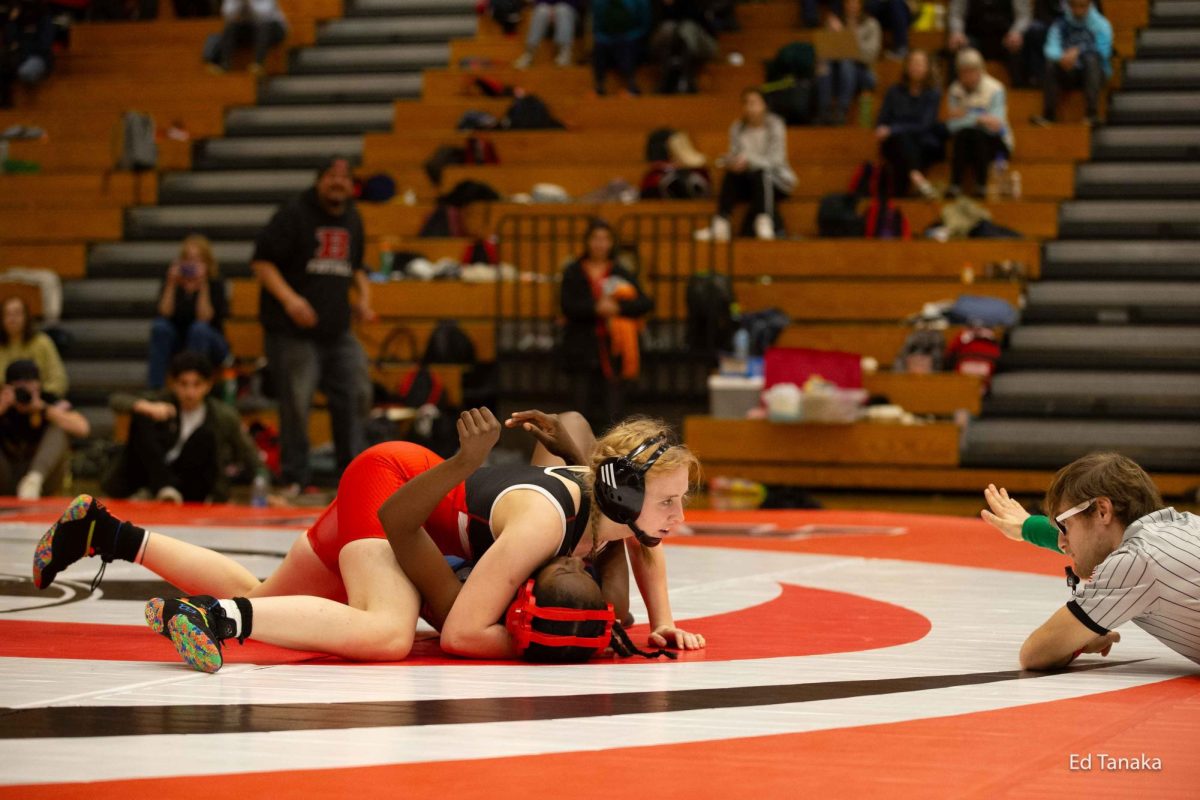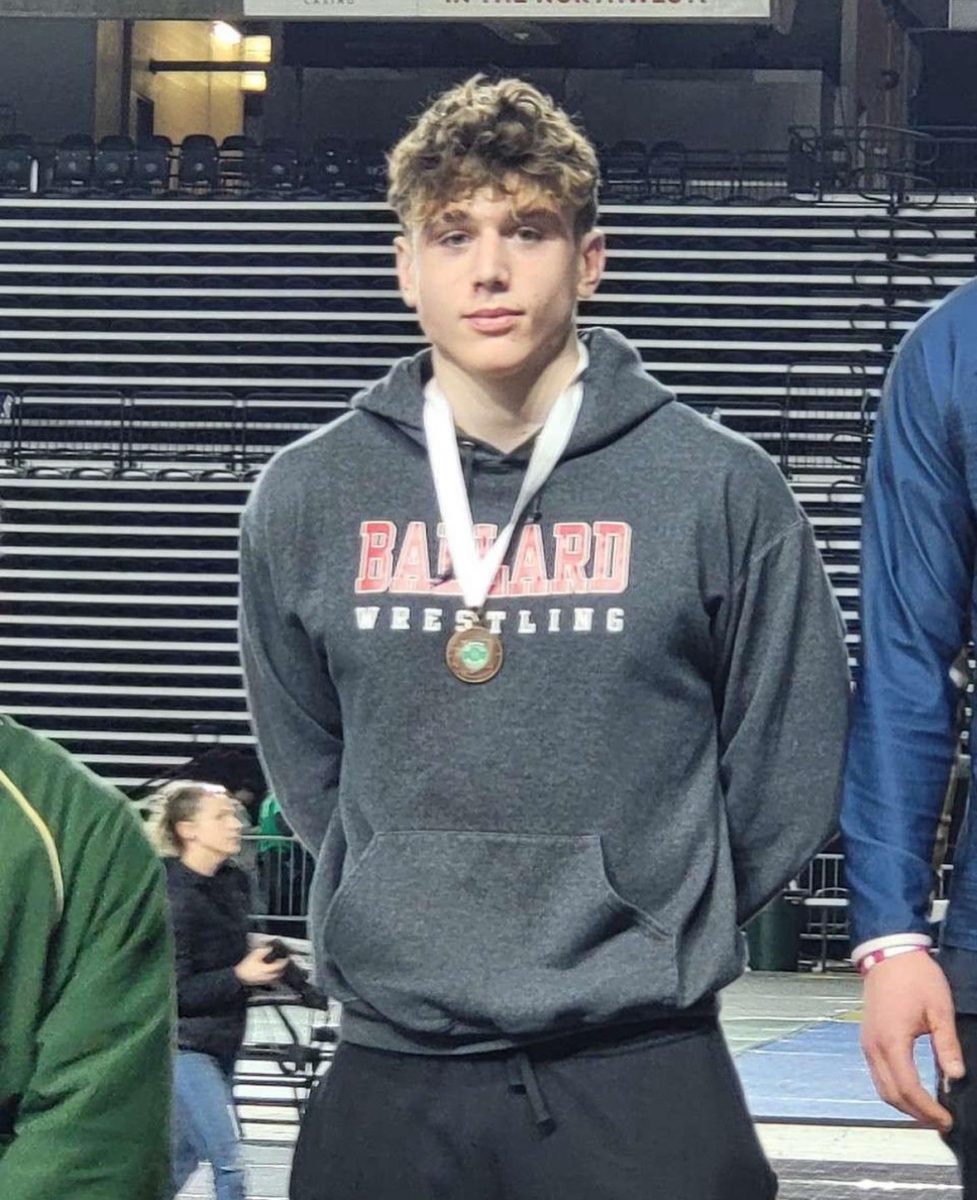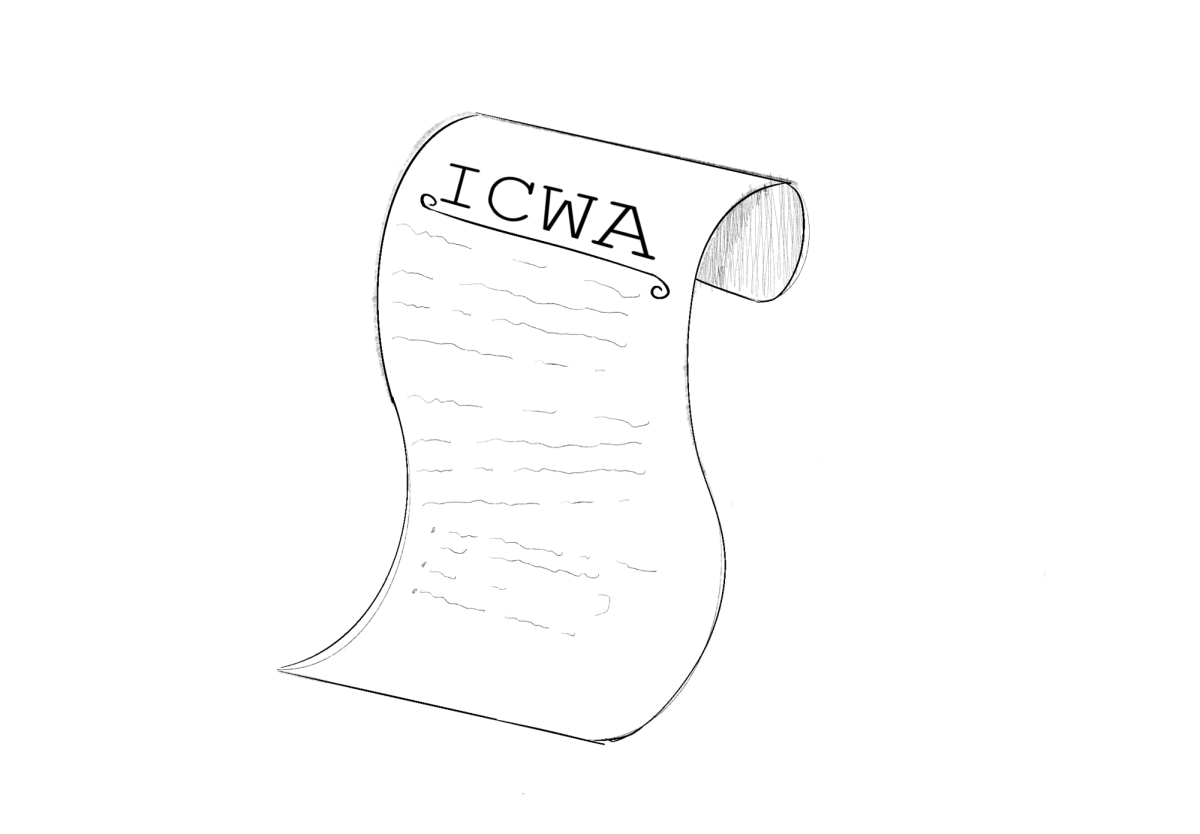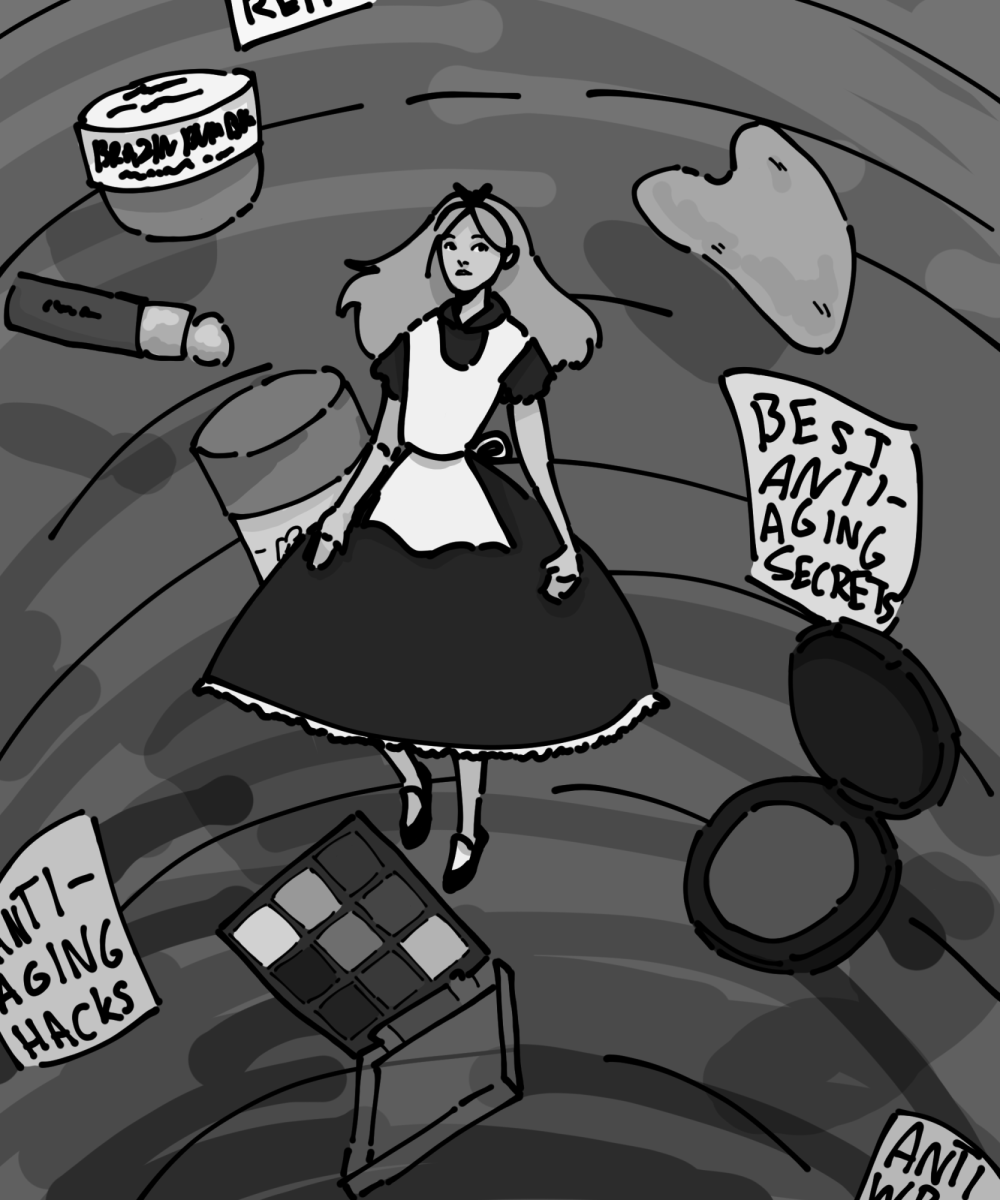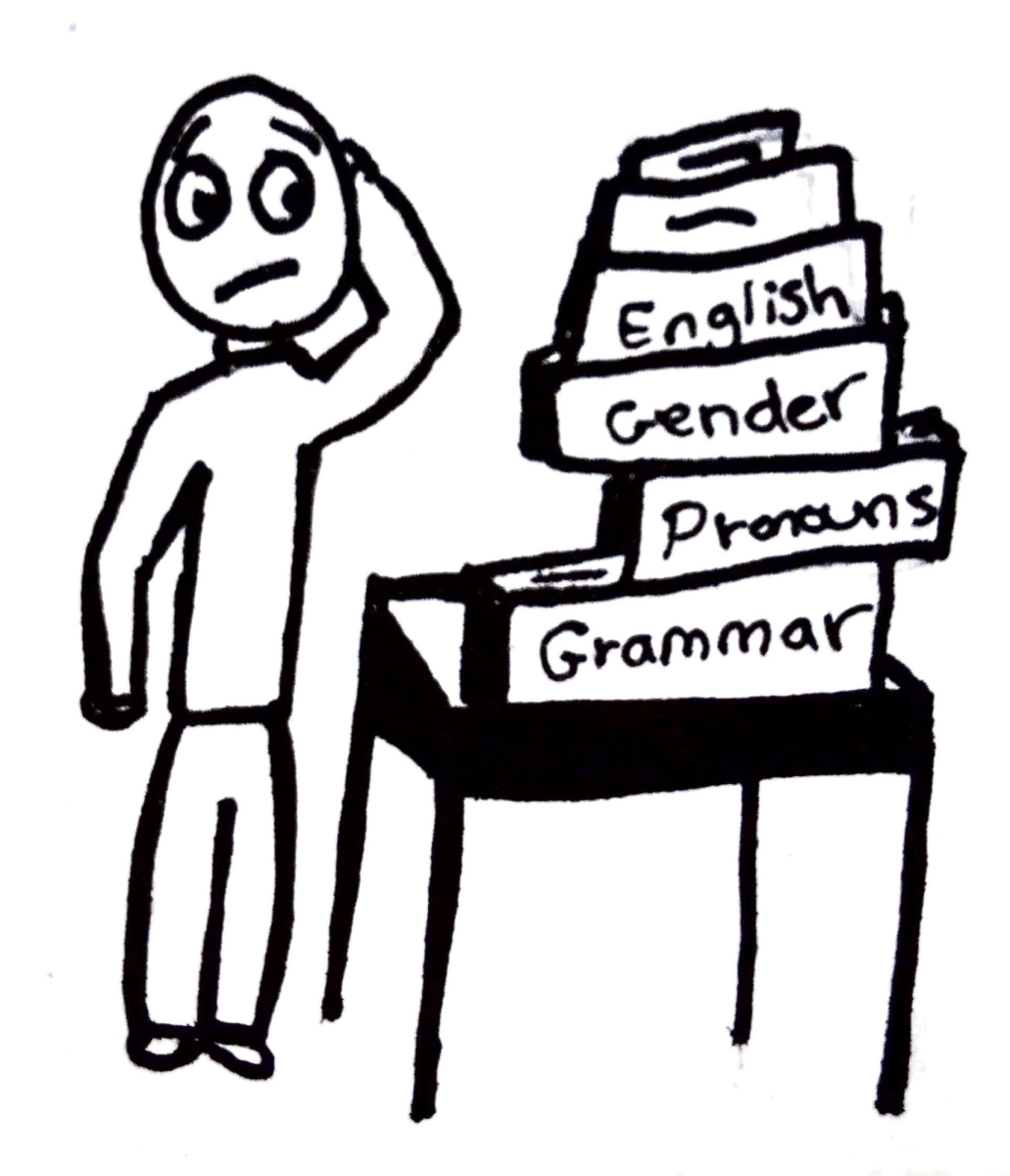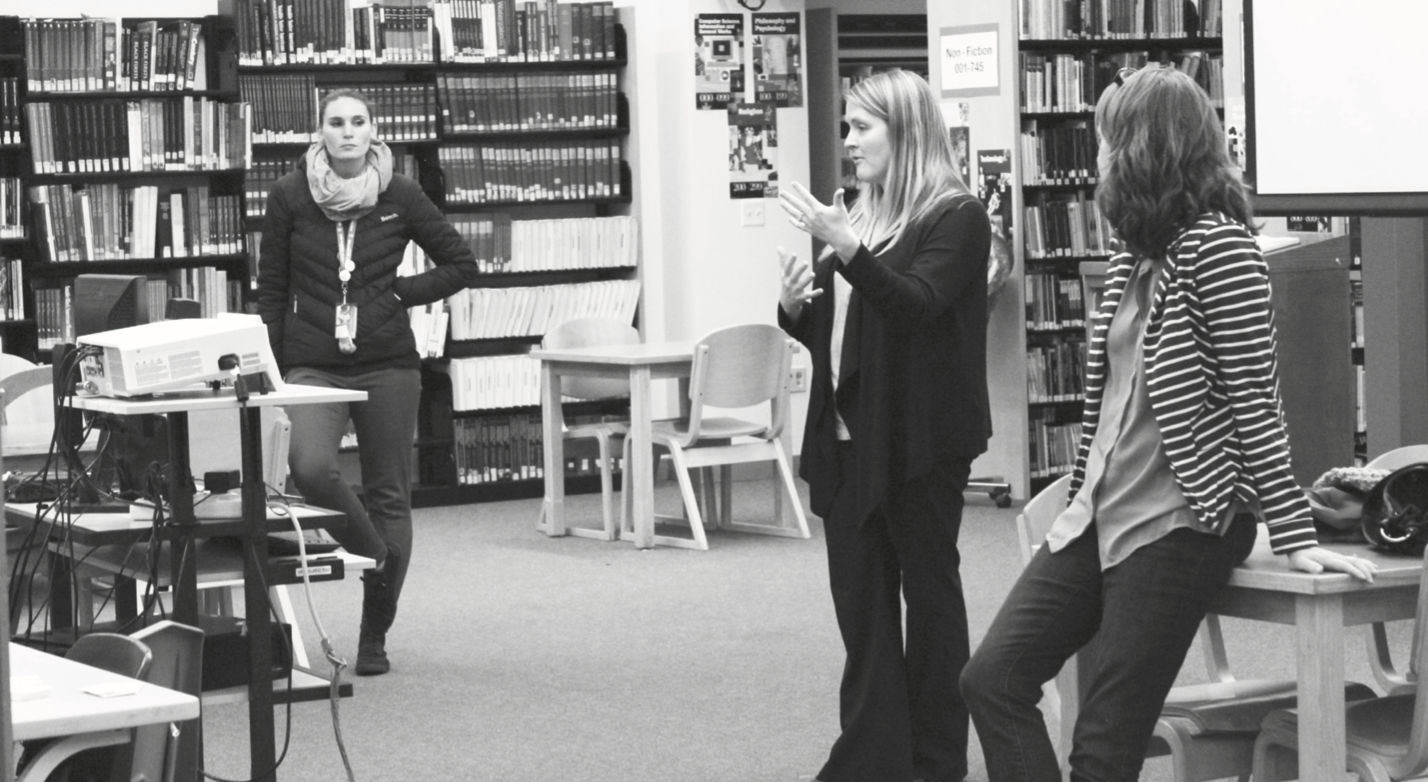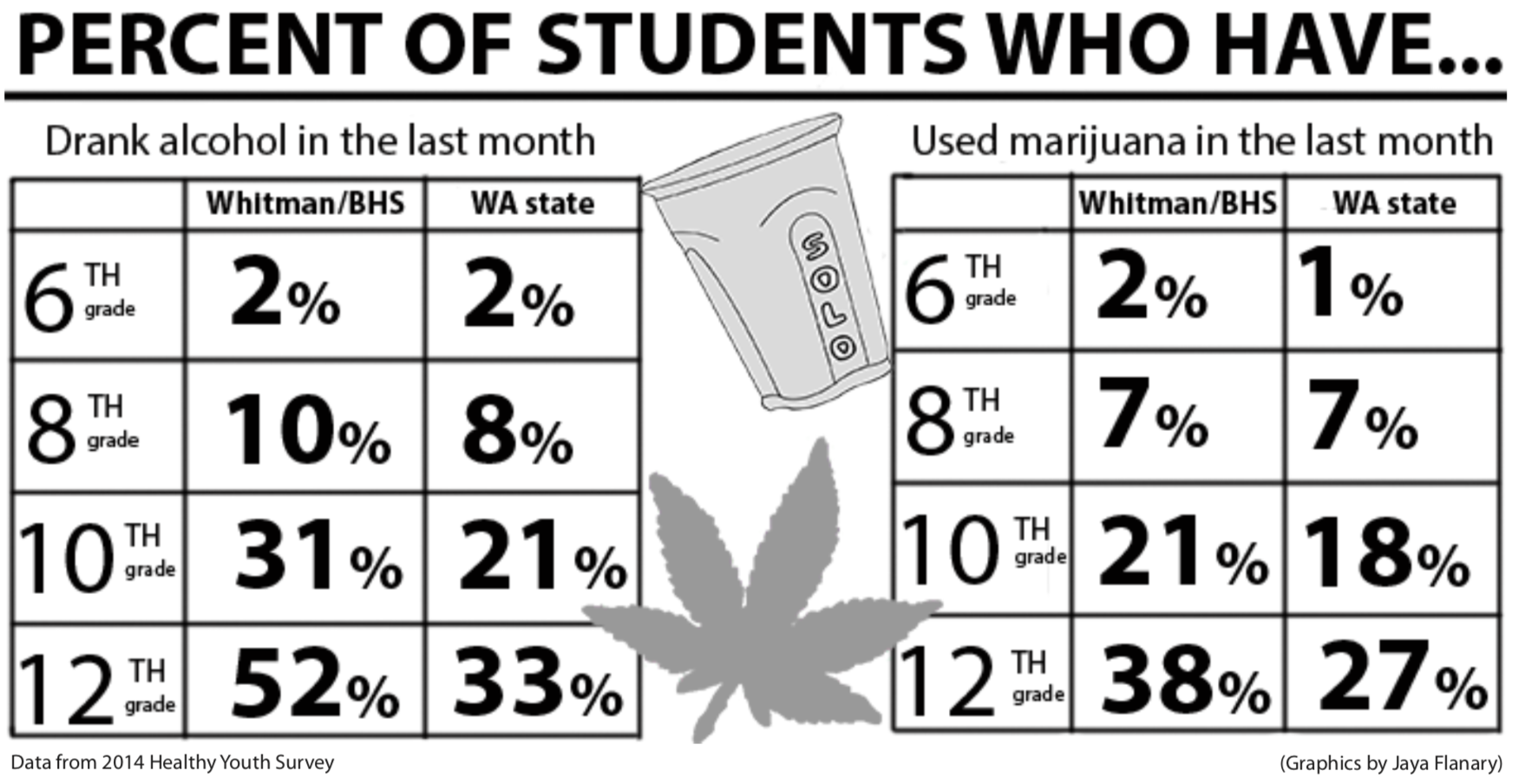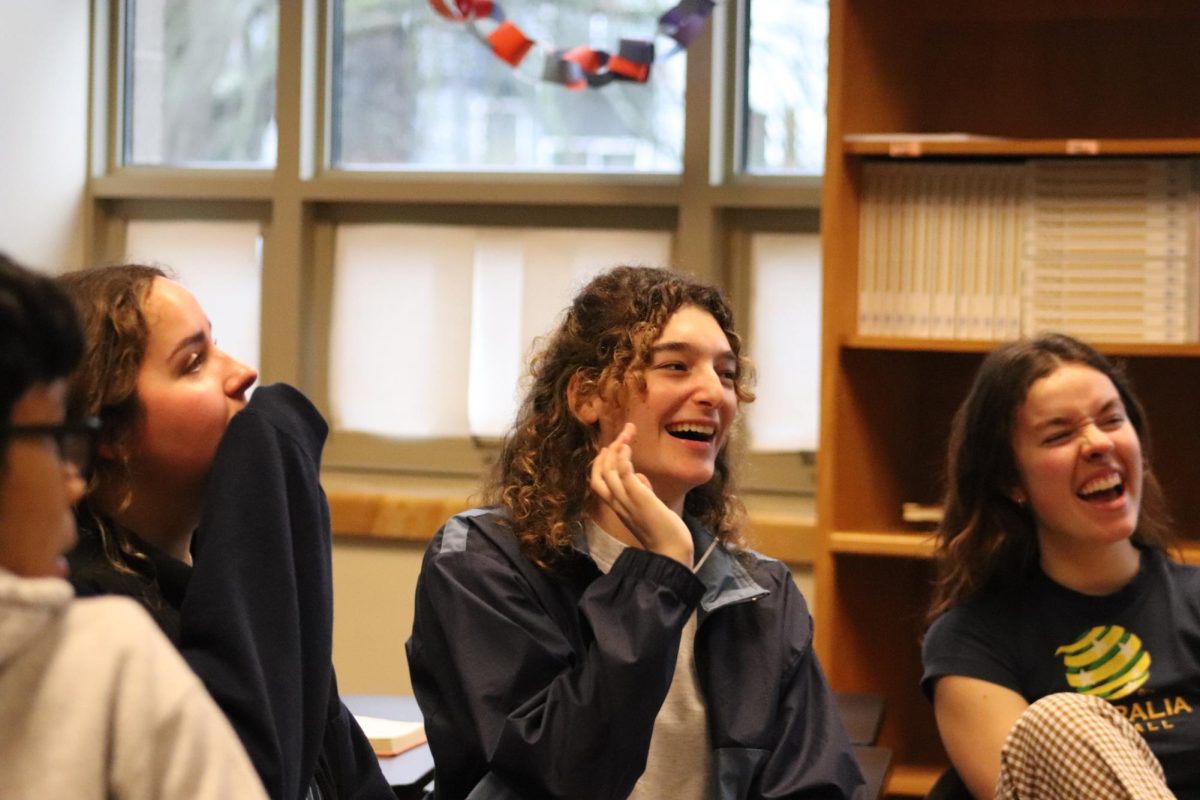Experts advise parents to start a conversation about substance use
Jaya Flanary and Meagen Tajalle, Editor-in-Chief and Features Editor
Originally published December 17, 2015
Mallery Perry
Kathryn Korch, Lisa Davidson and Karen Boudour answer questions from parents during the meeting for parents about how to talk to kids about drugs and alcohol. They not only gave strategies for how to talk to students, but also presented data about student substance use in the district.
On Monday Nov. 30, less than 15 parents gathered in the library to learn how to talk to their children about drugs and alcohol. Lisa Davidson, Seattle Public Schools Prevention and Intervention Manager, prepared her presentation on 2014 Healthy Youth survey data about substance use in the district. Every two years, students are asked to respond to questions about their opinions and habits regarding substance use.
Four different informational packets were available at the door. The projector failed, and after multiple attempts to get it to work, the presentation began without graphics to display the data.
After an introduction from Brita Bowman about the notMYkid non-profit organization, Davidson was introduced and began with an explanation of the survey.
Survey findings
The survey’s purpose is not just to collect data, but also to help people like Davidson form their educational services based on what kids already know and think about drugs and alcohol.
A parent asked if new laws regarding the legalization of marijuana and alcohol being sold in grocery stores have had a noticeable impact on student responses. Davidson said that while the numbers haven’t changed significantly, teenagers’ views on the substances have. Since marijuana was legalized, it has been viewed as less harmful.
The majority of teens don’t think substance use will adversely affect their health; only 13 percent of seniors think weekly use of marijuana is harmful, and 55 percent of sixth graders agree.
Alcohol is the most used substance in the district, with marijuana coming in second, followed by tobacco. While most teenagers access these things through their friends and at parties, some are exposed to substances at home by their parents.
Davidson talked about Dr. Leslie Walker at Seattle Children’s Hospital, who believes parents who supply their children with alcohol at home, or buy into the myth of “teaching your kid how to drink,” are only validating their consumption of alcohol outside the home. Parents who let their kids drink in the safety of their home believe that they are teaching them how to drink responsibly, but others believe that this will only lead to the child developing potentially dangerous drinking habits elsewhere.
“Families are very important,” Davidson told the attending parents. “I can go all day and make [students] take their drug education classes, and have wonderful counselors in there to help them understand the realistic effects of drug and alcohol use in their lives, but what’s going to be most important to kids is the message that they receive at home. Parents are the number one influence on whether or not kids use drugs and alcohol.”
Parent-child communication
Davidson brought data and information about trends from the district level, and Kathryn Korch, a drug and alcohol counselor at Ingraham High School, was there to provide a school level perspective, since she works closely with students.
Korch, like Davidson, emphasized the importance of communication between parents and their teenagers. She talked about safe words and phrases: establishing a word or phrase for a teenager to use when talking to their parent to let them know they’re in a situation that is unsafe or that they’re not comfortable with, and they need to leave or be picked up.
She practices refusal skills with the students she sees, going beyond “just say no” to “no because . . . ” having them practice giving her reasons.
Korch also brought up the Good Samaritan Law, which provides legal protection from prosecution for people who give assistance to anyone injured, ill, in peril or incapacitated. This means that if a student needs to call for help for a friend who is intoxicated, and they are also intoxicated, they will not face consequences if they stay with the friend until the police arrive.
When a parent asked about how to turn their child’s hangover into a lesson, Korch said, “You don’t need to. Natural consequences are a brilliant learning lesson.” She also pointed out that not all substances have natural consequences, and kids won’t necessarily get hungover every time they drink.
When Korch talks to students, she tries to put the consequences of substance use into a realistic perspective by asking the student about their goals or plans, and how using substances can get in the way of achieving those things.
Korch also explained the difference in sub- stance use across different demographics. Schools in wealthier neighborhoods, like Ballard, tend to have higher substance usage. “A lot of homes here [in Ballard] have more access to [substances] because a lot of parents have . . . a liquor cabinet and they have things stockpiled away for if they have friends over or maybe they want a glass of wine at dinner, versus parents coming from a one-parent household or lower income who don’t have the luxury of having a stockpile or a liquor cabinet,” Korch said.
![West Seattle High School’s (WSHS) Chinese program is closing down and teachers in the program are informed to transfer to a different high school. At WSHS, 475 both former and current students have signed a petition to help teacher Ying Yu continue her Chinese program. She shares that initially, the program offered only four classes with 90 students but with her initiatives, the program grew to be full-time with 154 students and 137 students on the waiting list. (Seattle Public Schools Board Meeting YouTube Channel: Seattle Schools Board Meeting May 8, 2024, [58:25])](https://ballardtalisman.org/wp-content/uploads/2024/06/Screenshot-2024-06-14-134038.png)
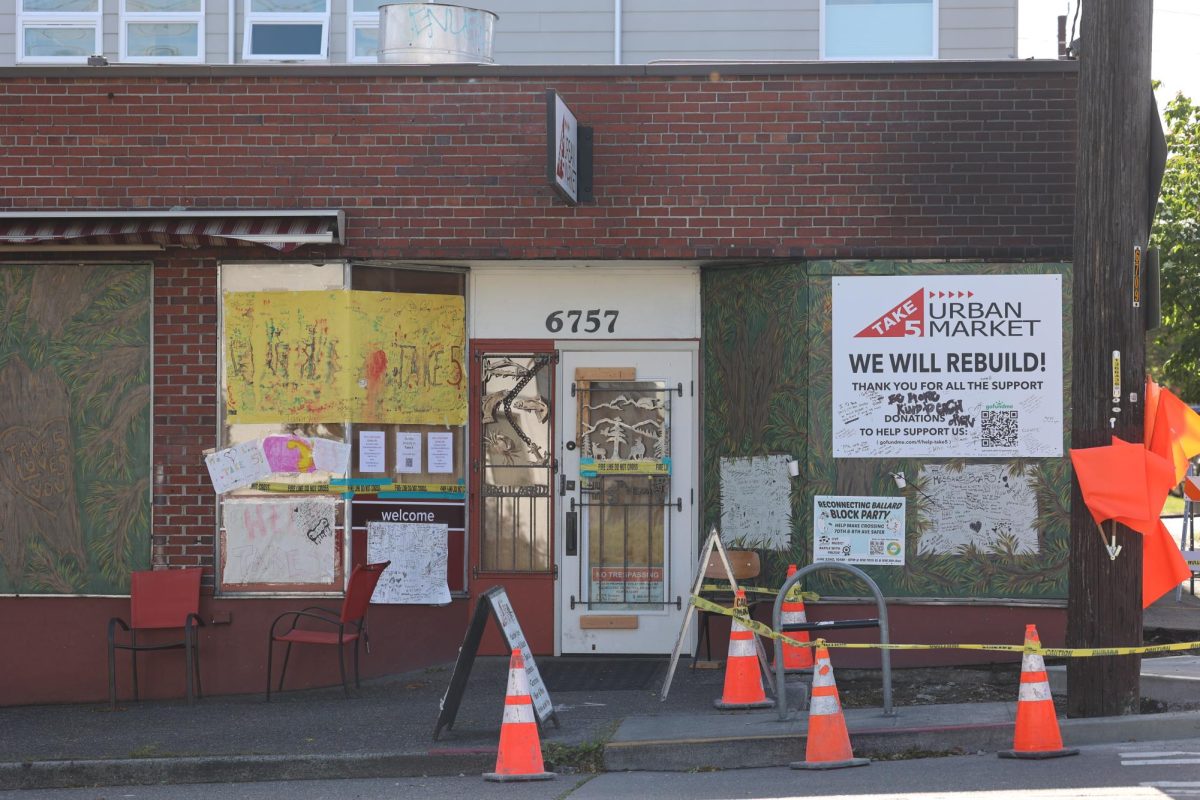

![“Link Crew is meant to be a way for [upperclassmen] to help ninth graders with the transition to high school,” Laura Lehni, language arts teacher, ASB advisor and Link coordinator, said](https://ballardtalisman.org/wp-content/uploads/2024/05/IMG_4601-1200x800.jpg)





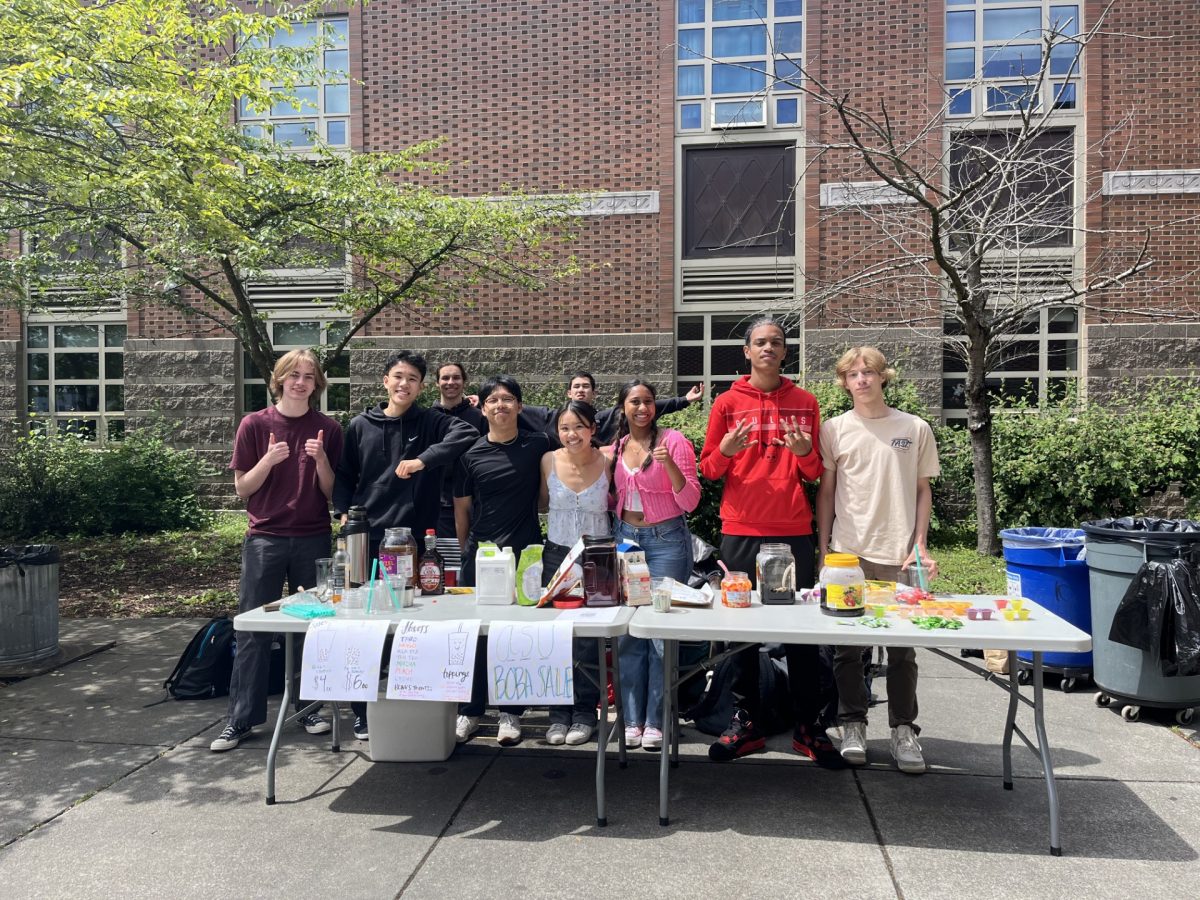

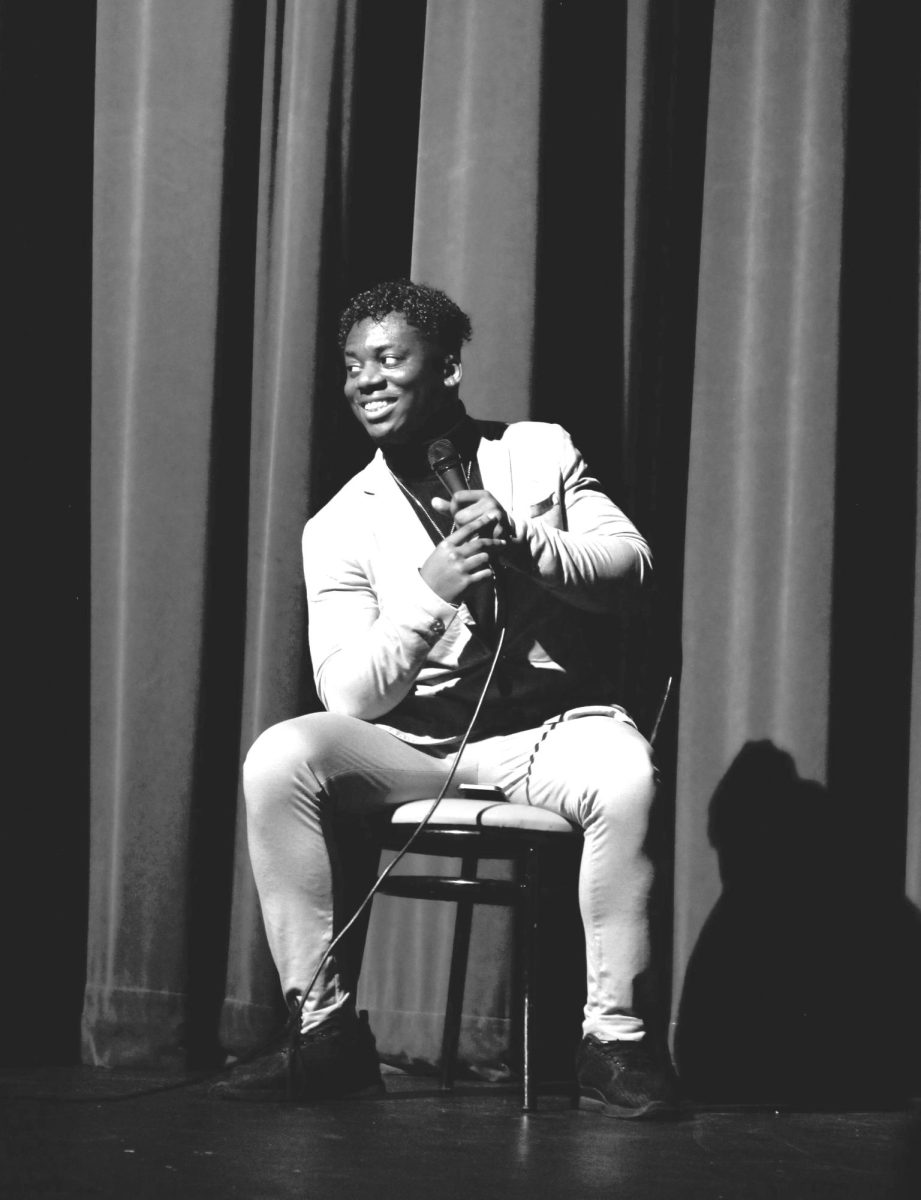

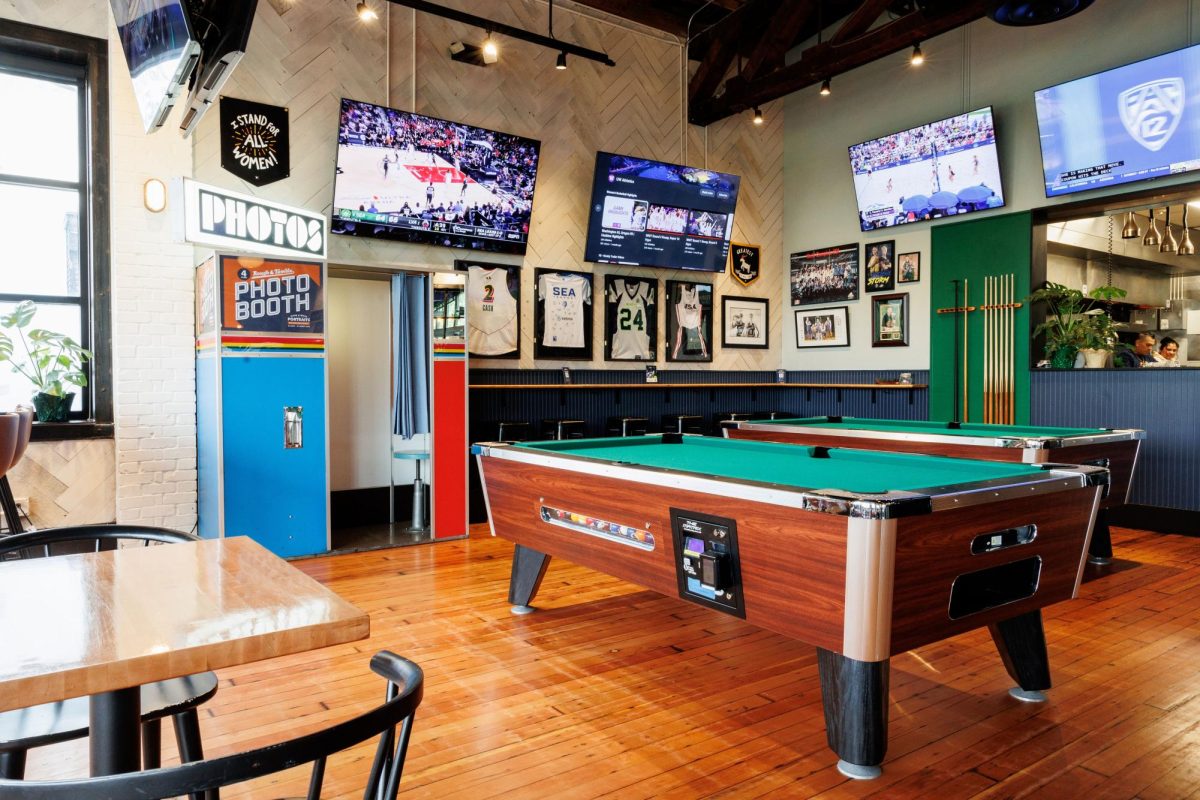
![Henry Willy [pictured left] taking the field with his teammates in a 10-11 loss vs. Saas.](https://ballardtalisman.org/wp-content/uploads/2024/05/IMG_2431.jpg)

